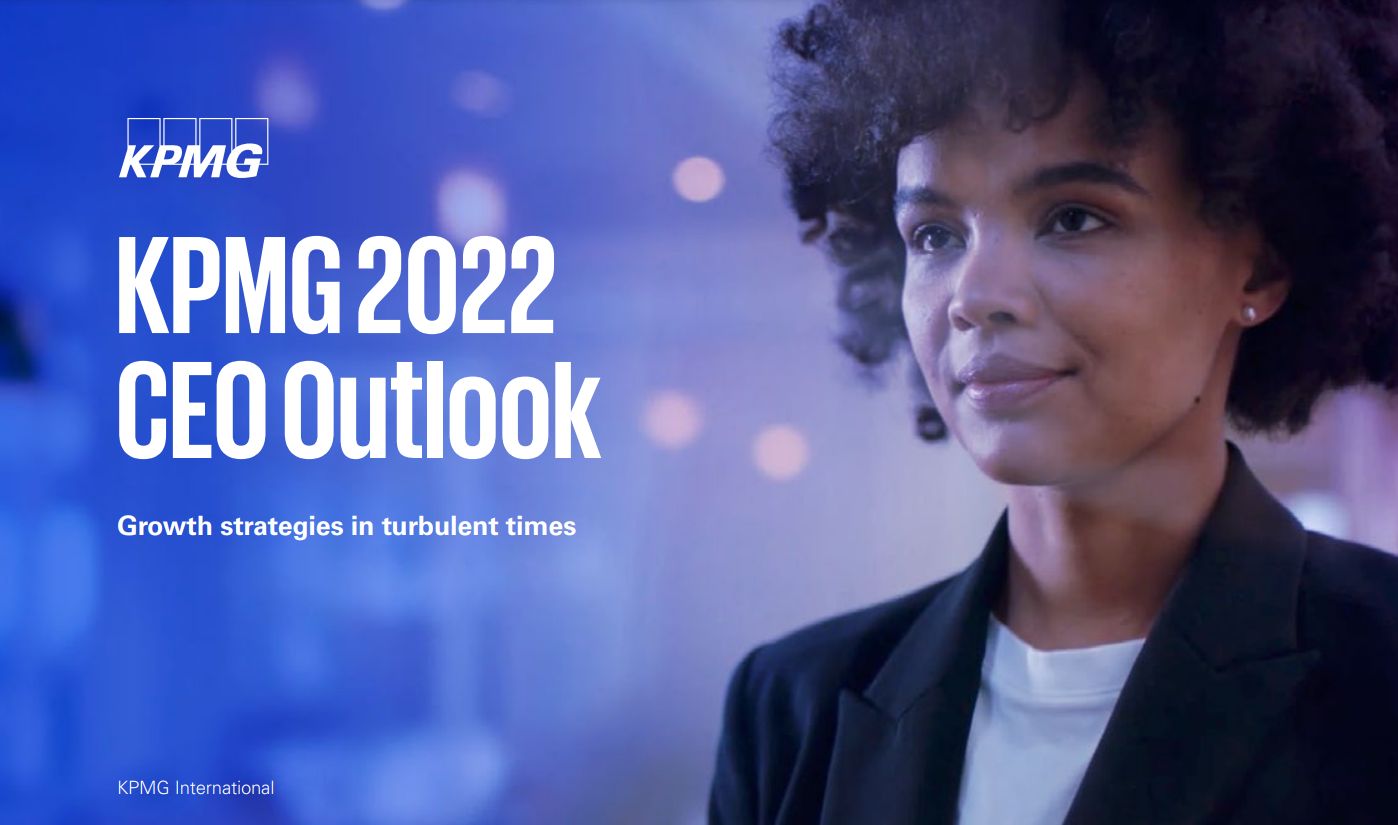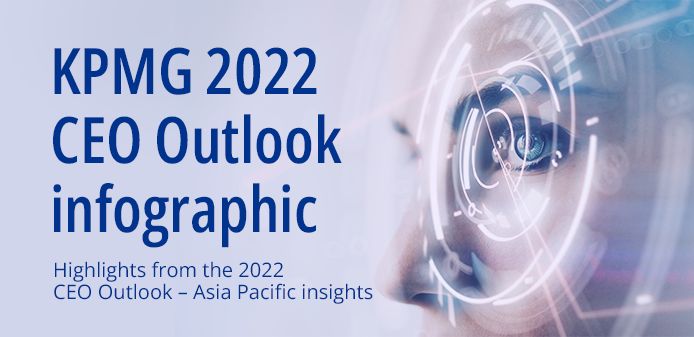The 2022 CEO Outlook draws on the perspectives of 1,325 CEOs globally, including from Malaysia, to provide insights of their 3-year outlook on the business and economic landscapes. The survey also reveals shifts in strategy and viewpoints from the KPMG CEO Outlook Pulse Survey conducted ahead of the Russian government's invasion of Ukraine.
Four key themes have emerged from this year’s CEO Outlook: economic outlook of the current geopolitical and economic challenges, impact of economic pressures on ESG, technology investments that drive growth, and talent as a top operational priority.


The ordeals over the past two years have certainly taught CEOs of the need to be constantly agile in the face of sudden adversities. Now, with those experiences under their belt, it is uplifting to see CEOs are finding opportunities amidst the fog of uncertainties.

Datuk Johan Idris
Managing Partner
KPMG in Malaysia
Managing Partner
KPMG in Malaysia
Economic outlook
CEOs anticipate a recession – but more than half are prepared to weather the storm
Despite being tested by enormous challenges in quick succession – a global pandemic, inflationary pressures, geopolitical tensions and a looming recession – CEOs in Asia-Pacific (ASPAC) are increasingly confident about the global economy over the next 3 years, rising to 65 percent from 50 percent earlier this year.
While confidence has grown, CEOs anticipate some headwinds. Six out of 10 (63 percent) believe a recession will happen over the next 12 months, but more than half (55 percent) anticipate the recession will be ‘mild and short’ and 58 percent have plans in place to confront it.
In response to the anticipated recession, over the next six months CEOs in ASPAC plan to:
implement a hiring freeze
manage cost by increasing price
reduce profit margins
Growth in the post-pandemic world takes precedence
As countries are transitioning towards endemicity, businesses are now picking up and learning how to navigate the road map of operating in a post-pandemic world.
Over the next 3 years, 75 percent of CEOs are keeping post-pandemic growth at the top of mind – with managing supply chain risks trailing close at 74 percent and digital transformation strategy and ability to retain talent with pressures of inflation tied at third (73 percent).
Environment, Social and Governance (ESG)
Unabating stakeholders’ expectations
As CEOs strive to maintain optimism and take steps to insulate their businesses from an upcoming recession, indicators point to ESG progress suffering as a result. 47 percent cited that they are pausing or reconsidering their existing or planned ESG efforts over the next six months, while 29 percent have already done so.
Nonetheless, stakeholder pressure continues to influence accountability in ESG. Seven out of ten (71 percent) see significant stakeholder demand for increased reporting and transparency on ESG issues, with 33 percent coming from institutional investors and 21 percent from regulators.
A business’s ESG approach is increasingly seen as a differentiator when it comes to attracting and retaining talent. 31 percent cited that the biggest demand and pressure for greater ESG transparency comes from employees and new hires. And with many CEOs saying they’re struggling to tell a compelling ESG story (43 percent), it’s important for CEOs to articulate for stakeholders the steps they’re taking to address ESG in their organizations.
Biggest challenge in communicating ESG performance to stakeholders

Technology
Disruptive and emerging technology risk tops the list
CEOs are keeping technology risk at the forefront as disruptive technology has emerged as the top risk and greatest threat to organizational growth over the next 3 years. In the face of these risks, three out five (61 percent) CEOs have cited they are placing more capital investment in buying new technology.
Considering that businesses rely on their ecosystems to deliver a competitive edge, 65 percent view new partnerships as a critical component to continuing their pace of digital transformation.
Supercharging ESG with technology
An unexpected outcome of the COVID-19 outbreak has been the acceleration of digital transformation. Caught in this momentum has been the drive to supercharge ESG ambitions, which is set to continue through 2022.
The survey shows that 71 percent of CEOs are in agreement that their organization's digital and ESG strategic investments are inextricably linked, with 28 percent reporting the lack of appropriate technology is the greatest barrier to achieving net zero or similar climate ambitions.
Talent
A top operational priority
How CEOs support and attract talent is changing because of the challenging global economy and CEOs’ growth goals. The employee value proposition to attract and retain the necessary talent is the top operational priority to achieving their 3-year growth objectives (27 percent, up from 13 percent last year). More than two third (73 percent) agree the ability to retain talent with the pressures of inflation/rising cost are top of mind.
Recession driving talent freezes
With recession looming, there’s a significant short-term emphasis on hiring freezes and headcount reductions: 35 percent of CEOs have already implemented a hiring freeze, and 40 percent are considering downsizing their workforce over the next 6 months.
Nevertheless, when CEOs take a longer-term view, 76 percent expect their organization’s headcount to increase over the next 3 years.
Methodology
About KPMG’s CEO Outlook
The 8th edition of KPMG CEO Outlook, conducted with 1,325 CEOs between 12 July and 24 August 2022, provides unique insight into the mindset, strategies and planning tactics of CEOs not only comparable to pre-pandemic to today, but also from KPMG’s CEO Pulse Survey conducted with 500 CEOs between 12 January and 9 February 2022, before the Russian government's invasion of Ukraine.
All respondents have annual revenues over US$500M and a third of the companies surveyed have more than US$10B in annual revenue. The survey included leaders from Malaysia and 11 markets (Australia, Canada, China, France, Germany, India, Italy, Japan, Spain, UK and US) and 11 key industry sectors (asset management, automotive, banking, consumer and retail, energy, infrastructure, insurance, life sciences, manufacturing, technology, and telecommunications).
NOTE: some figures may not add up to 100 percent due to rounding.


